
Top stories






More news


Marketing & Media
Ads are coming to AI. Does that really have to be such a bad thing?













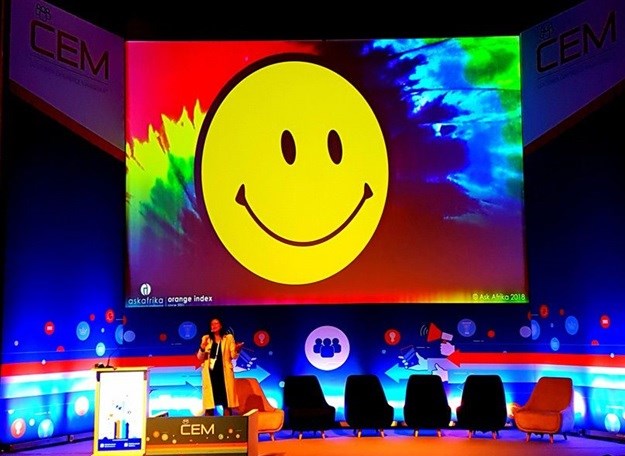
The second day of CEM Africa 2018 focused on extracting value from data and outside-in CX. MC Leeanda Reddy introduced De Beer as someone who "walks the tightrope in red-soled stilettos." Add to the mix the fact that she holds two psychology-based master's degrees and tells it like it is, and we have a clear winner for my presentation of the day.
De Beer seemed to sense this, as she went on to present the knock-out keynote session of the day, on the need for smart data for smarter experiences, and measuring what matters when the needs and expectations of today's consumer have evolved drastically over time.
De Beer began by stating that in the increasingly competitive and fast-moving environment of today, customers' needs are changing faster than most corporates can keep up with.
As a result, we tend to focus on getting those internals right, but De Beer says before you dive in and tinker with your products, to first take a step back and remember that it’s increasingly about the people rather than the processes, as technology is just the enabler.
De Beer added that companies often ask for comments on aspects of a business that don't usually occur to or impact on the consumer, which results in an artificial form of engagement and unrealistic ratings.
We then over-interpret the numbers and come to questionable conclusions. If we are truly committed to customer experience, we need to rather focus on what does and doesn’t work for them when they deal with our businesses, as scary as that may be.Offering a snapshot of how customer expectations have changed over the years, De Beer confirms that companies are doing better in terms of accessibility and ease of engagement, but that's largely due to massive technological investment making things easier for the customer.
Very few brands are succeeding at making a true emotional connection and building that relationship with the customer. Here's why...
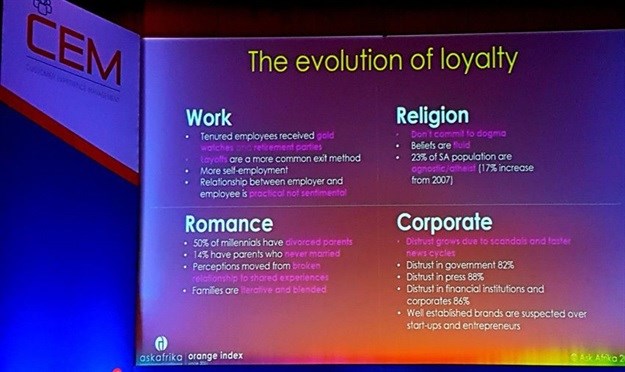
Research shows that what’s important to consumers of today, from the businesses they work with, is the stability of employees, which is a fairly abstract concept; as well as that 'millennial mindset' motivator of total time taken to resolve queries and requests.
We want it fixed almost before we've noticed there's a problem.
So, De Beer pointed out that overall satisfaction definitely does improve over time due to those all-important technological advanced, but that equally important aspect of emotional satisfaction is usually just not there.
From an intra-personal point of view, De Beer touched on the collective unconscious worry about the implications of AI and robots taking our jobs, but that's likely not going to happen as our responsibilities become exceedingly more complex.
Instead, we should worry about our ability to engage with our customers, but many merely turn a blind eye.
Unfortunately it seems that customers' loyalty to a specific brand no matter what is a thing of the past. Very few of us trust corporate institutions, challenger brands are taking over and we are slowly but surely becoming more polygamous in our banking.
Fake news is actually everywhere and sometimes we literally don’t know what to believe.
As a result of these factors, brand loyalty is decreasing significantly, because by and large, we are comfortable with change as consumers. But what does this mean for the brands we work on?
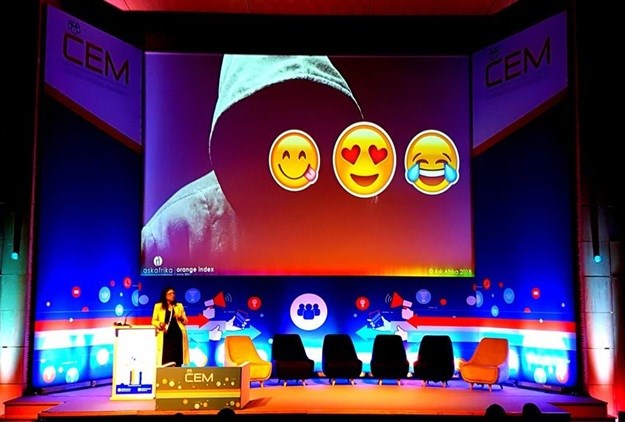
De Beer received a round of applause for saying it's no longer good enough to just 'like' something on social media, you need to 'love' it to show it really resonates with you.
But then how do you differentiate between the things you really do love and those we use daily but don't necessarily have a connection with?
De Beer added that customers are becoming ever more adept at using emotional language - just think of the wide variety of emojis and emoticons already out there, with updates added every few months to reflect the 'real world'.
In fact, we're 'comfortably numb' behind all those emoticons.
Choice is, of course, a good thing, but De Beer's concern is that consumers are becoming increasingly fickle.
In addition, what we think about something isn’t necessarily how we feel about it. That's a problem when it comes to consumer feedback surveys.De Beer also pointed out that a commercial relationship is not built on a birthday SMS alone. Corporates have access to so much of our personal data yet most don't use it in a clever way that the consumer appreciates. Sad, but true.
Added to this, De Beer says as much as social media gives us a voice, the downside is that consumer expectations have changed, as we are always both on a screen and present - so we're usually not fully present in the moment.
De Beer feels that need to connect won’t go away, but she says we are starting to disconnect, and also to unlearn the ability to build relationships.
That's worrying, as true emotional intelligence or EQ comes from practice and experience.
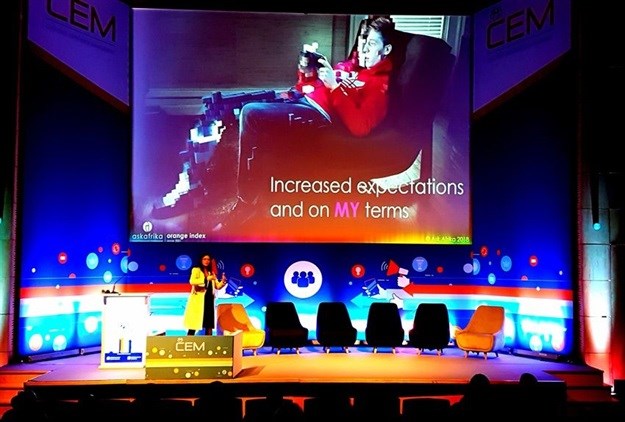
De Beer concluded that we will need to have difficult conversations with this customer of the future, who has expectations that most of our brands can't realistically meet - not just yet, anyway.
De Beer ended with the thought that we need to rethink our reliance on Maslow's hierarchy of needs and work harder at understanding how consumers are changing.
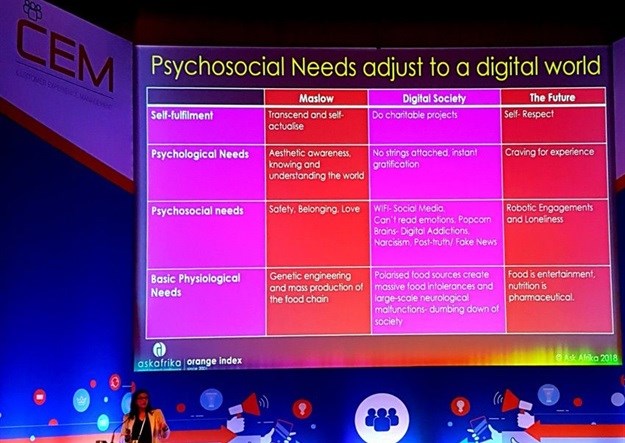
Time for lots of rethinking ahead. You can read up on more on #CEMAfrica, and watch for our coverage of the two-day conference.
